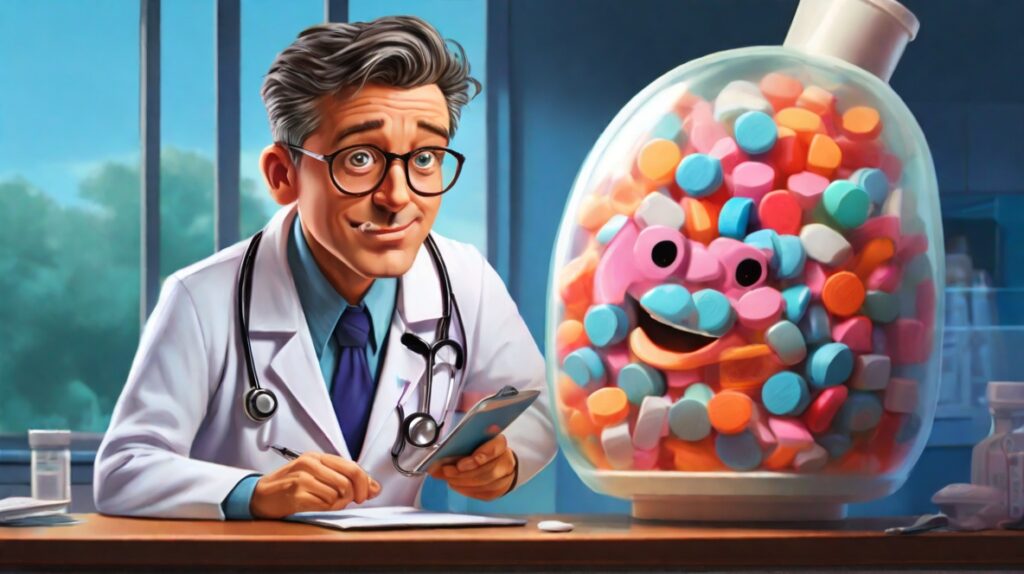
For centuries, medicine has relied on tangible solutions – antibiotics to fight infection, surgery to repair injuries, and prescription medications to alleviate symptoms. However, a fascinating phenomenon known as the placebo effect challenges this traditional understanding. It demonstrates the power of the mind-body connection, highlighting how our beliefs and expectations can influence our physical health, even in the absence of any active treatment.
What is a Placebo?
A placebo is a seemingly inactive substance or treatment that has no inherent therapeutic properties. It can take various forms, such as sugar pills, saline injections, or even sham surgeries. In clinical trials, placebos are often used as a control group to compare the effectiveness of a new medication. Participants are randomly assigned either the actual treatment or the placebo, and neither the researchers nor the participants know which one they are receiving (double-blind study). This design helps isolate the true effects of the medication from psychological factors like expectation and hope.
The Unexpected Power of Placebos
Surprisingly, research consistently shows that a significant portion of participants in placebo groups experience improvement in their symptoms. This is known as the placebo effect. Studies have documented its effectiveness in treating a wide range of conditions, including pain, anxiety, depression, allergies, and even Parkinson’s disease.
One particularly interesting example comes from a study on pain perception. Participants were given a cream and told it was a powerful new pain reliever. In reality, the cream contained no active ingredients. Despite this, a significant number of participants reported a reduction in pain. This suggests that simply believing in the treatment’s efficacy can trigger the body’s natural pain-relieving mechanisms.
The Mind-Body Connection: How Placebos Work
The exact mechanisms behind the placebo effect are still being explored, but several theories have emerged. One prominent theory focuses on the role of expectation. When a person receives a placebo while believing it to be an effective treatment, their brain releases a cascade of chemicals, including endorphins, which act as natural painkillers and mood elevators. This response can then lead to a reduction in symptoms.
Another theory emphasizes the importance of the doctor-patient interaction. A positive and trusting relationship with a healthcare professional can foster a sense of hope and optimism in the patient. This belief in the doctor’s ability to help can, in turn, trigger the placebo effect. The ritual of taking a pill or undergoing a procedure can also play a role. These actions can provide a sense of control and a feeling of actively doing something to address the problem.
The Power of Belief: Beyond Medicine
The implications of the placebo effect extend far beyond the realm of medicine. It highlights the profound influence our minds have on our overall well-being. Positive affirmations, mindfulness practices, and visualization techniques can all harness the power of belief to promote mental and even physical health.
For instance, a study examining the effects of affirmations on test performance found that students who repeatedly stated positive self-talk messages before an exam scored significantly higher than those who did not. This suggests that simply believing in our abilities can improve our actual performance.
Ethical Considerations and the Limitations of Placebos
While the placebo effect offers a powerful tool for harnessing the mind-body connection, ethical considerations surround its use. Patients have the right to know what treatments they are receiving, and withholding this information can be seen as deceptive. Additionally, the placebo effect is not a one-size-fits-all solution. It may not be effective for everyone, and its benefits tend to wane over time, especially when patients discover they are taking a placebo.
Furthermore, relying solely on the placebo effect can be dangerous for serious medical conditions. It’s crucial to remember that placebos are not replacements for effective medical treatments.
The Future of the Placebo Effect: Harnessing the Mind to Heal
Research on the placebo effect is shedding light on the intricate connection between our thoughts and our physical state. This knowledge paves the way for the development of novel therapeutic approaches that integrate psychological interventions with traditional medicine. Techniques like cognitive behavioral therapy (CBT) can be combined with medication to enhance treatment outcomes and potentially reduce reliance on purely pharmaceutical solutions.
Understanding the placebo effect also allows healthcare professionals to tailor their approach to individual patients. By fostering a positive and trusting relationship, emphasizing the potential benefits of treatment, and acknowledging the power of the mind, doctors can harness the placebo effect to optimize patient care.
The placebo effect serves as a compelling reminder that healing isn’t solely a product of external interventions. Our minds play a crucial role in influencing our health, and by harnessing the power of belief and expectation, we can empower ourselves to take an active role in our own well-being.
